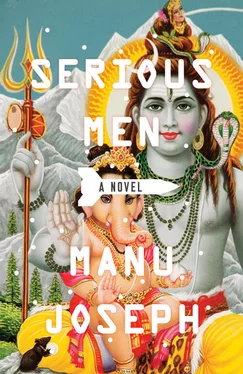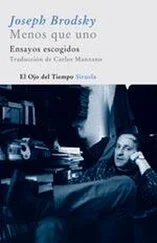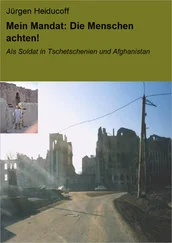‘Why do you want to waste your time?’ Ayyan said. ‘He is not even going to look at you.
Someone screamed, ‘He is here.’ The crowd surged into the road. A pilot jeep screeched to a halt and behind it stopped a light-blue Mercedes, which was quickly surrounded by people. From the jeep, four bodyguards with machine guns ran to the Mercedes. (They guarded the minister at all times from the danger of being considered unworthy of such security.) They had to jostle and push to open the door of the car.
Waman, in a starched white kurta, emerged with joined palms.
Bikaji shouted, ‘The Leader of the Masses,’ which was repeated by the crowd.
Then they heard Bikaji scream, ‘Motherfucker,’ because an intrusive friend was now sharing the burden of the garland.
‘I am just helping,’ the friend said, offended.
Bikaji pushed him away angrily and advanced to the leader to garland him before others tried to benefit from his roses. Waman held the garland over his shoulder until a bodyguard extricated him.
‘I made that banner for you,’ Bikaji said, pointing to the illegal hoarding on the pavement.
‘Nice, good,’ Waman said, and asked, ‘Where is the boy’s father?’
Men began to yell, ‘Ayyan, Ayyan.’
Ayyan emerged from the crowd, held the hand of the minister with both his hands, and then touched his chest.
‘Let’s go,’ the minister said.
Ayyan and Waman walked down the broken, cobbled ways of the chawls with at least three hundred people following them. Photographers ran in front to take their pictures, and in-between the shots they jogged backwards. The minister looked around at the rows of grey identical buildings.
‘I know that you too lived in a chawl once,’ Ayyan said.
‘Yes, in Grant Road. A long time ago,’ Waman said, with a smile that was proud of its old sorrows.
‘We have been trying to sell,’ Ayyan said. ‘Builders are interested.’
‘Of course they will be. This land is worth its weight in gold.’
‘I want to sell too,’ Ayyan said, ‘but a lot of people are resisting. There are eighty thousand people who live here. It’s hard to get everybody to agree. Builders want all or nothing.’
‘Obviously,’ Waman said, shaking his head, ‘People are afraid, aren’t they? They have lived here all their lives. They are comfortable with the things here.’
‘Yes. They want the same neighbours, the same lives.’
‘How much are the builders offering, Mani?’
‘Twelve lakhs for a 150-square-foot flat,’ Ayyan said.
‘Drive it up to fifteen,’ Waman said confidently. He looked at the vast real estate and appeared to make some calculations in his head.
The entourage went to the terrace of Block Number Forty-One, where a hundred others were already gathered. A table shrouded in a white cloth was at one end of the terrace. Waman made his way through the assembled crowd, smiling and bowing, and naming one hoisted baby who was already named.
When he sat at the table, Bikaji and his men formed a human cordon around the minister. The cordon parted to admit Ayyan, with his son and wife. Oja joined her palms and gushed.
The minister asked, ‘And this is the great Adi?’
The boy was more absorbed in the machine guns of the guards.
‘Can I hold?’ he asked a guard who shook his head.
‘Lock it and give it to the boy,’ Waman ordered. ‘It’s very light,’ he said with affection to Adi.
The guard did as he was told, and Adi felt the magic of holding an AK-47.
The family sat down next to the minister. The audience was on the floor or on the chairs they had dragged from their homes.
The minister gave a speech in which he narrated how when he was as old as Adi he was tied to a tree by Brahmin priests because he had committed the crime of entering a temple. ‘They left me like that the whole night,’ he said. ‘Next morning, I ran away from my village and came to Bombay with nothing, not even ten rupees in my pocket. Not even a pocket actually.’
Ayyan had heard this story before, and many more that the minister would not recount. How he had once sold vegetables on a wooden cart near the Crawford Market and slowly become a thug, despite his small stout frame. He pelted stones and broke shop windows to protest against matters he did not understand and to mourn the deaths of leaders he did not know. He grew to become a coordinator of freelance goons and, in time, joined politics. His art lay in raising armies of angry Dalit youth at short notice who could turn very violent at times. The Untouchables, in modern times, had won the useless right of being touched by the high caste, but they remained the poorest in the city. Every time they felt slighted, as for instance when miscreants once garlanded the statue of their liberator Ambedkar with slippers, men like Waman used to lead a battalion of angry youth and loot whole lanes.
‘They go in rage and return with Adidas,’ Ayyan had told Oja on a day when from the kitchen window they had seen looters going home happily with huge cartons.
‘Who is Adidas?’ Oja had asked.
The entry of such a man into the innocuous game of erecting a boy genius made Ayyan feel afraid. He stared at the profile of this fierce orator whose panegyric of Adi now erupted in spangled silver spit that glowed momentarily against the twilight sky, like minuscule fireflies.
‘Such a boy, is a rare boy,’ the minister was saying, ‘Adi is a rare boy.’
The way the minister said ‘Adi’ sounded morbid to Ayyan. A man capable of murder now knew the name of his son and there was something disturbing about it. But Ayyan calmed his fear by the other stories he had heard about the minister which made him seem more endearing. When Michael Jackson had visited the city a few years ago, Waman had been part of the group of politicians who met him. The minister had later told the press, ‘He is a very polite man. There is not a trace of arrogance in him. You don’t get the feeling at all that you are talking to a white man.’
Waman finished his speech by hailing Adi as the future liberator of the Dalits.
‘I’ve been hearing about him for so long,’ he said. ‘He is so bright that he has now been given the permission to take one of the toughest exams in the world. And he is just eleven. May we have many more like him. Let’s together show the world, the power that is locked inside all of us.’
The audience clapped and the minister sat down, wiping his face with his fingers. A guard advanced with a huge cardboard box.
‘It’s a computer,’ Waman declared to the crowd, which applauded again. Some women in the audience looked at each other, raised their eyebrows and curled their lips.
The minister presented the box to Ayyan with the boy standing in-between them as the nominal recipient. Photographers clicked through the din of ovation and Bikaji’s hysterical screams: ‘The leader of the masses.’
As the minister left the terrace, cutting straight through the unmoving crowd, desperate voices filled the air, asking for jobs, money and welfare. He nodded many times, looking all around but never meeting an eye. ‘Go home. Have faith in the government,’ he said.
Before he got into his car, he turned to Ayyan and said, ‘Come and meet me sometime in my office. We will figure out a way to sell this place.’
Ayyan went back home, accepting a thousand greetings on the way, and the heavy gazes of appreciation and envy which wore the same face here. Adi was alone at home. He was trying to yank the monitor out of its carton. He smiled brightly at his father and said, ‘Now I have a computer.’
‘Yes, you do, but don’t break it. Let’s read the book and fix it. Where is your mother?’
‘Some women came and took her away.’
Читать дальше












